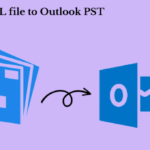Businesses from other industries are not as vulnerable to cyber security threats as accounting and financial firms. Cyber-attacks target them heavily because they deal with sensitive data and valuable financial information. Therefore, in order to avoid revenue loss and uphold a positive reputation, accounting firms must remain aware of cyber security threats.
There are a lot of ways to manage your financial data and raise the revenues of your business. This blog explains the 7 security threats accounting firms should watch in 2023. So, stay with us here and keep an eye on this page to be aware of them.
Top 7 Security Threats Accounting Firms Should Watch in 2023
Accounting companies handle a tonne of sensitive financial data in a world that is becoming more digitally connected, which makes them easy targets for hackers. 2023 will bring with it a more difficult security environment for accounting firms. Due to the increased adoption of online collaboration, cloud-based services, and remote work, cyber criminals now have a larger target. The top seven security risks for accounting firms to watch out for in 2023 are covered in this blog.
1. Outdated Software
Despite spending a lot of money on advanced security solutions, big tech companies have frequently failed to protect sensitive customer data. Because accounting firms handle potentially highly valuable data, they are more susceptible to ransomware and malware attacks. When the operating system and applications are not updated, the probability of these attacks increases.
Therefore, accounting firms must always keep their software, for instance, OS, business accounting software, browsers, and so forth, up to date. If you want to upgrade your accounting software, then you must approach accounting software in UAE service providers. It will bestow you with the latest-tech accounting software that securely manages all your financial statements and data.
2. Data Breaches Caused by Employees
Cloud accounting is becoming increasingly popular among accounting firms, allowing staff members to access accounting software from different locations and on different devices. Even bringing and using personal devices for work is permitted for staff members. The security features and updates necessary to protect the data are absent from these devices.
Accounting firms must require staff members to use particular apps and solutions in order to access and share sensitive client data. Employees must also install strong antivirus software and routinely remove client data from their devices.
3. Data in Transit
Accounting organizations should prioritize protecting data in transit as well as data at rest when putting cybersecurity strategies into action. Accounting firms now use a variety of channels for both internal and external communication. A lot of cybercriminals use ransomware and other malware attacks to steal confidential company information while it’s being transmitted.
To securely share and transfer sensitive financial information, the accounting firm needs to use email encryption. The email encryption solution needs to be set up such that emails and attachments are automatically encrypted.
4. Remote Data Access
A lot of accounting firms use cloud computing to give their staff members remote online access to accounting software and client data. Accounting companies can even function in distributed environments with the aid of cloud-based services and solutions. On the other hand, remote data access facilitates hackers’ ability to steal and exploit confidential client financial information.
5. Cloud Security
The need to secure the cloud is growing as more accounting firms switch to cloud-based solutions. Data breaches and unauthorized access can be caused by improperly configured cloud settings and lax authentication procedures. Accounting companies should prioritize strong identity and access management, encryption, and secure cloud configurations in 2023 to protect their cloud-based assets.
6. Cryptojacking
Accounting professionals’ fear of cybersecurity has increased with the emergence of alternative financial transactions. In contrast to traditional malware attacks, cryptojacking uses unauthorized computer use to mine cryptocurrency for hackers. Cybercriminals use phishing-style attacks to carry out cryptocurrency mining attacks.
They even use browser extensions and well-known websites to spread malware that mines cryptocurrency. Accounting firms must have a strong plan in place to identify and stop cryptojacking since companies in a variety of industries are using cryptocurrencies to buy and sell products.
7. Zero-Day Exploits
Zero-day exploits are attacks that aim to take advantage of hardware or software vulnerabilities that the vendor is unaware of. Before developers can fix them, cybercriminals frequently find and take advantage of these vulnerabilities. Accounting companies can reduce the danger of zero-day exploits by keeping up with hardware and software vulnerabilities and quickly applying patches.
Purchasing intrusion detection and prevention systems can also assist in spotting possible dangers and taking appropriate action. Therefore, you must contact the best accounting software in UAE suppliers to integrate the latest cloud-based accounting software. It will bestow the high-profile accounting software that deals with multiple currencies and secure all the financial statements.
Wrapping Up
Accounting companies need to be on the lookout for a variety of accounting threats in 2023. It entails spending money on personnel training, sophisticated security solutions, and effective incident response plans. Accounting firms can better protect their client’s sensitive financial data and uphold their reputation for reliability and integrity in the digital age by integrating secure accounting software into their organizations.


